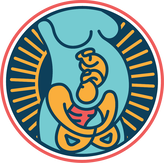|
Postpartum recovery is a crucial stage. As new parents, you may think that the laborious period ends after your baby's birth, but this fantasy is not often the case. Usually lasting for six to eight weeks after delivery, the postpartum period requires you to devote utmost care and attention to yourself as your body adjusts. If not taken seriously, postpartum health can influence your lifetime risk of disease. Medical experts from Maryville University explain how chronic illnesses are on the rise, typically brought about by poor diet choices and lifestyle decisions. These can easily escalate to more serious health complications, especially for new moms. Well Seek note how a postpartum mom’s body may be depleted of the necessary nutrients due to ensuring that her baby’s needs are met. If a new parent doesn’t replace the nutrients with food from a healthy diet they increase their chance of chronic illnesses, infections, and mental health issues like depression. These will also affect them long after giving birth. More than anything, nutrition is your first line of defense and the key to regaining your strength. That said, here are some tips to plan your meals for postpartum recovery. Choose nutrient-rich foods By now, nutrient-rich foods should already be a staple in your diet, but even more so when you're in recovery period. Because your aim is to heal your body, nutritious foods are great because they also fight off inflammation. Ensure that you're getting a good mix of vegetables, fruits, yogurt, some whole grains, bone broths, healthy fats, and more. Check out our post ‘This is Your Birth’ for a list of pregnancy-friendly food, which you can consult after giving birth. Eat enough calories Calorie counting only comes second to making sure you're having a balanced diet. But if you're looking for a safe estimate, most doctors will recommend a daily caloric intake of 1,800 to 2,000 calories a day for postpartum parents. Of course, this can still vary depending on your prior weight and other factors. If you're breast-feeding, health writer Erin Coleman suggests adding an extra 400 to 500 calories a day to maintain your energy levels and keep your milk supply steady. After all, breast-feeding can burn as much as 500 calories. Consume more protein Protein is your body's building blocks. Without it, your enzymes, body tissues, and hormones will not be able to function normally. And after sustaining your baby's growth in your womb for months, it's absolutely essential to restore your sources. As a rule of thumb, your goal should be to have at least five servings of protein daily, but be sure to keep it high quality. Stick to foods like red meat, chicken, beans, and eggs. Always hydrate Hydration is standard for everyone, but it is important that postpartum parents drink even more water. Instead of capping your glasses at 8, aim to drink at least 10 to 15 glasses of water everyday. This is required not just to quench your thirst, but also to ensure you can produce enough breast milk. Moreover, consuming more fluids can speed up the repair of your regenerating body systems. Think collagen Not just an ingredient in your skin care products, collagen is a superfood that helps with the regeneration of tissues. Again, this is essential for healing bodies. Fortunately, you can find collagen in foods like egg whites, oranges, berries, and a variety of nuts. A study by the International Journal of Women’s Dermatology shows how collagen can even help with postpartum hair loss. Don’t be afraid to take supplements More than anything, you should be able to get all your required nutrients from food. But if you're struggling to keep up with your body's daily needs, you may want to enlist the help of supplements. Vitamin C, D, and Omega 3 are staples, but it's always best to consult with your doctor or healthcare professionals before trying anything.  Health and financial blogger Mya Summer believes that your diet is what dictates not just your outlook but also your capacity for enjoying life. When she’s not teaching yoga and tai chi at the local gym, she goes on forest hikes with her husband Timothy and their two huskies, Daniel and Vito.
0 Comments
Over time, humans went from giving birth unmedicated to placing parents-to-be in a sterile environment, isolated from loved ones, with the fear of their impending labor looming over them. This type of birthing experience tended to enhance the parent's anxiety and induce more stress than was necessary. Stress-filled labor can lead to birth complications and a negative experience for both parent and infant. Fortunately, the medical community has come to realize that the benefits of doulas to a parent's birthing experience are far more significant than they realized. An expectant parent with doula support benefits significantly from having full emotional and physical support during a time in their life that may make them feel out of control. This type of support offers the self-confidence needed to have uncomplicated labor. Doula supported parents report experiencing less pain during delivery as well as a lower rate of epidurals, cesareans, and the use of medical instruments during the birthing process. This type of delivery also means that doula supported parents have lower hospital costs. Stress-free labor is highly beneficial to not only the expectant parent but the infant as well. Studies have shown that babies born from a doula supported birth have higher Apgar scores. There is also a positive parent-infant interaction during childbirth, which also results in boosting early breastfeeding scores. The overall experience provides the new parent with higher self-confidence in their abilities to bring their child into the world safely. Both the scientific and medical community now back doula support for birthing parents. Many studies and findings prove that this type of support has many benefits to both the parent and child that can't be ignored. WeTheParents have compiled these findings into 17 evidence-based benefits of doula support demonstrating the importance of doulas.  Neve is the mother of three, a natural birthing advocate, and a research nerd. She is chief editor at WeTheParents where she routinely creates engaging summaries of the scientific literature on various aspects of pregnancy and parenthood. You can catch her on Twitter and Facebook. |
AuthorAs the Philadelphia birth world blooms bigger and brighter, I think it's time I start putting some of the insightful questions I've received and information I've research into a public journal. I hope you'll find this inspiring, empowering, and totally enjoyable. Archives
February 2021
Categories |


 RSS Feed
RSS Feed